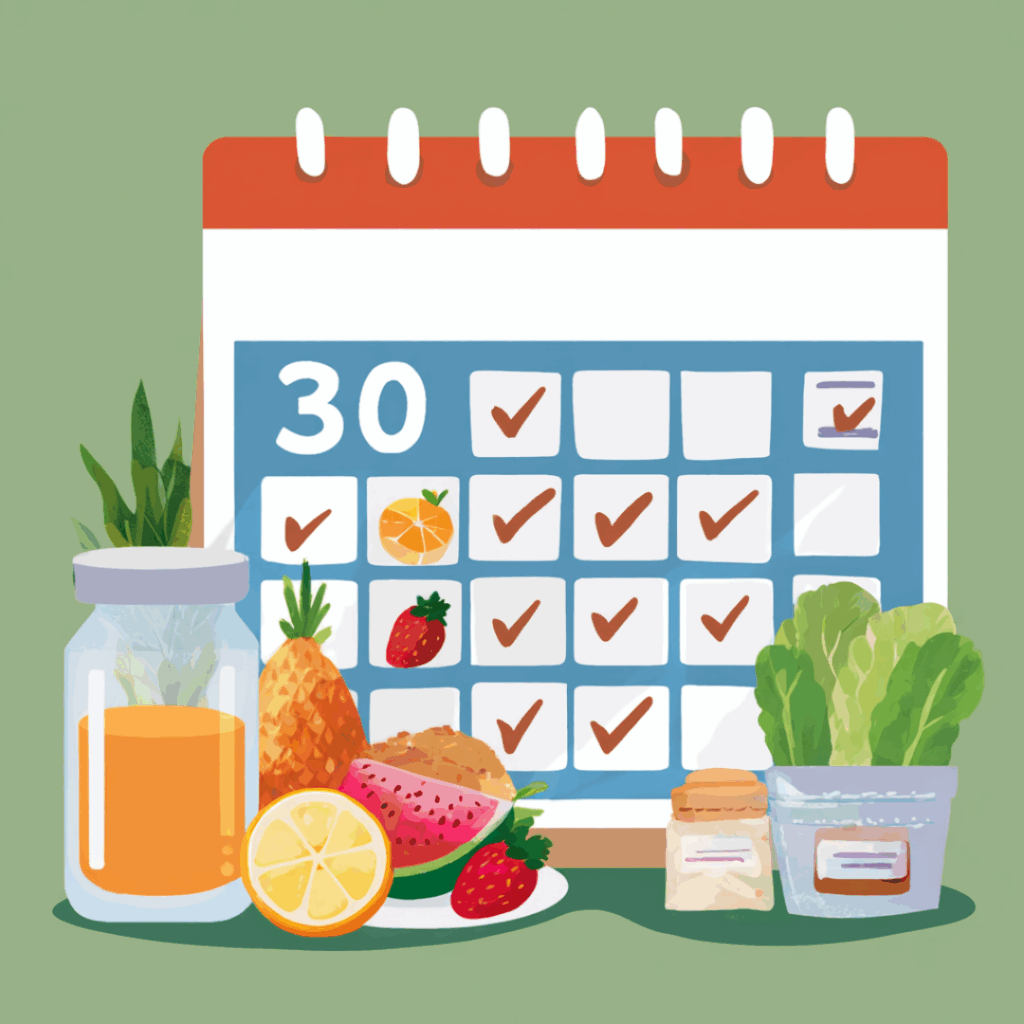By Mike, The SugarFreeMan
Founder of SugarDetox.com and the 30-Day Sugar Freedom Challenge
I need to get out more.
Yesterday I took a walk in the sunshine and realized I’d become a bit of a vampire. Between the workday grind and daylight savings, I’d been doing all my walks at night. The sun on my face felt amazing – a little Vitamin D hit that reminded me humans weren’t meant to live behind screens.
Here’s the thing about me: I’m a severe introvert. Like, less than 1% on the personality tests – the most introverted category they measure. But even us hermits are herd animals. We’re wired to be together, even when it feels uncomfortable.
And that discomfort? That resistance to reaching out? It’s the exact same barrier that keeps people stuck in sugar addiction for years.

The harsh truth: Most people who successfully quit sugar long-term do one thing that people who stay stuck never do. It’s not willpower. It’s not the perfect diet plan. It’s something far simpler and infinitely harder.
.This article was review by Dr. Camela McGrath, MD, FACOG. Find more about her here
Why Asking for Help Feels Impossible (And Why That’s the Problem)
In order to have plans on Friday night, you need to think about it on Tuesday or Wednesday. I always remember on Friday at 5:30.
Even with platonic friendships, reaching out feels like I’m bothering people. Like they don’t need to hear my crap – they’re busy with their own lives.
After I finally screw up the courage to call someone or meet for bubbly water, I feel great. Every single time.
But asking for help? That raises the bar to an entirely new level.
The idea of calling someone to talk about just my stuff still feels foreign and strange. It’s a wonder I stayed sober at all, honestly. Because reaching out and asking for help is one of the main tenets of any successful recovery program.
I’ve never been good at it. And if you’re reading this, struggling with sugar, chances are you’re not either.
The Rugged Individualist Myth
We all know the BS about the rugged individualist. The self-made woman. The “strong one” who handles everything alone.
If I had a dollar for every woman who did everything for everyone else in the family but nothing for herself, I could fund all the scientific research on the planet and solve every health crisis we face.
That mentality – the “I should be able to do this myself” mentality – is exactly what keeps sugar addiction alive and thriving.
Here’s what really happens:
You try willpower. Hard. You try fad diets, cleanses, and detoxes. You white-knuckle your way through three days, maybe even a week. Then life happens, stress hits, and you’re face-down in a pint of ice cream wondering what’s wrong with you.
Nothing is wrong with you. You’re just trying to fight a physical addiction with mental toughness alone. Research shows sugar activates the same reward pathways in the brain as cocaine and heroin. You wouldn’t expect someone to quit heroin through willpower alone, would you?
The Pattern Nobody Talks About
After 35 years sugar-free and helping tens of thousands of people through detox, I get to see something most people don’t: patterns.
Patterns of folks who succeed. And sadly, patterns of those who stay stuck.
Here’s what’s fascinating:
more than half our success stories actually “failed” before. Either with us or with some other detox or diet. Or ten.
So what changed? What’s the difference between the people who finally break free and the people who keep spinning their wheels?

The Success Pattern: Getting Involved
It’s simple. The people who succeed get involved.
Simple word. Simple concept. Incredibly hard to do.
Here’s what involved looks like in practice:
- They show up consistently – They log into the support forum almost every day, even when they don’t feel like it.
- They share the wins AND the losses – They broadcast what’s actually happening, not just the highlight reel.
- They tell us how they feel – Saying “I’m struggling” or “I almost broke today.”
- They let themselves be held accountable – They don’t hide when things get tough. They lean in.
Notice what’s not on that list? Perfection. Having it all figured out. Being the “good student.”
The people who succeed are often the messiest, most honest ones in the room.
Ready to see real progress? Join the 30-Day Sugar Detox Challenge and get involved today.
What Most People Actually Want (And Why It Keeps Them Stuck)
Most folks don’t really want to quit sugar.
What they want is to learn how to control it – to be “normal.”
“I just want dessert sometimes like a normal person.”
“I just want to enjoy birthday cake without a binge.”
But sugar addiction doesn’t work that way. You can’t negotiate with a drug. Harvard research confirms sugar triggers the same dopamine response as addictive substances.
Then, something magical happens: they reach out, ask for help, and get involved with a community of people who understand.

Why Going It Alone Doesn’t Work
You’re not weak because you can’t quit sugar alone – you’re fighting your brain’s chemistry.
When you eat sugar, your brain releases dopamine and serotonin. Over time, it adapts – needing more sugar for the same effect.
When you try to quit alone:
- Days 1–3: Withdrawal – headaches, fatigue, irritability, cravings.
- Days 4–7: Mental battle – “Is this worth it?” “Maybe I’m overreacting.”
- Days 8–14: A trigger hits. With no support, you reach for sugar again.
There’s nothing wrong with you – you just can’t see the battlefield from inside it.
What Support Actually Provides
- Perspective: Others remind you it’s normal.
- Accountability: You’ll check in tomorrow, so you stay on track today.
- Normalization: Hearing others’ stories breaks shame.
- Practical strategies: Real people share what actually works.
- Celebration: Someone to validate your wins.
This is the difference between staying stuck and breaking free.
How to Actually Reach Out
You don’t have to do it perfectly – you just have to do it.
Start small:
- Tell one trusted person.
- Join a sugar-specific recovery group.
- Commit to showing up.
- Share one small thing.
- Ask for what you need.
- Stick around when it gets easier.
The Truth About Sugar Freedom and Community
If you’re serious about breaking free, join the 30-Day Sugar Detox Challenge – complete with lessons, a private forum, check-ins, recipes, and accountability.
Stop Overthinking This Thing
Stop overthinking.
It’s not easy – but it’s easier with help.
Simple directions + kind people = peace of mind and a right-sized body.
What if the solution isn’t trying harder – but finally admitting you need help?
Because the people who ask for help are the ones who break free.
Your Next Step Is Simple
You’ve already started by reading this far.
The next step: reach out. Say “I need help with sugar addiction.”
Say it to a friend, a doctor, or even to yourself.
Because you can’t do this alone – and you were never supposed to.
What Happens Next
When you finally reach out, you’ll feel scared – maybe embarrassed.
Do it anyway.
Because soon, you’ll feel seen, understood, and not alone.
Gradually, you’ll build something you’ve never had before: sustained freedom from sugar.
Not through willpower.
Not through a perfect diet.
But through honest connection with people who get it.
About the Author
Mike Collins, known as “The SugarFreeMan,” has been sugar-free for 35+ years and founded SugarDetox.com, helping thousands recover from sugar addiction through science and practical strategies.
Medical Disclaimer
This article is for educational purposes only and not medical advice. Always consult a healthcare provider before major dietary changes.
FAQ
Q: Why can’t I quit sugar on my own with just willpower?
A: Sugar activates the same reward pathways as cocaine and heroin. You’re not weak – you’re fighting your brain’s biochemistry. Support adds perspective, accountability, and strategies that willpower alone cannot.
Q: What does “getting involved” mean?
A: Showing up consistently, sharing honestly, being accountable, and connecting with others. It’s not about perfection – it’s about participation.
Q: How do I reach out if I’m an introvert?
A: Start small – tell one person, join a community quietly, and share one small update. You don’t need to overshare; you just need to start.
Q: What happens in the first 14 days alone vs. with support?
A: Alone: withdrawal, mental fatigue, relapse. With support: perspective, practical tips, and encouragement when cravings peak.
Q: Why do most people want to “control” sugar instead of quitting?
A: They want to use it like “normal” people – but sugar addiction doesn’t work that way. You can’t moderate an addictive substance.
Q: What separates success from failure?
A: Getting involved. Those who reach out for community support – not willpower – are the ones who recover long-term.






